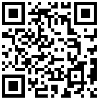As science and technology rapidly progress today, the Internet of Things (IoT) has become an integral part of our daily lives. This may seem like a grand concept, but what exactly does it do in our day-to-day world? Let's delve into the mystery of IoT.
We'll start with the definition of IoT. The Internet of Things refers to the networked interconnection of information sensing devices such as radio frequency identification, infrared sensors, and global positioning systems, among others. These devices exchange information and communicate based on predefined protocols to enable intelligent identification, positioning, tracking, monitoring, and management.
So, what does IoT actually do? Let's explore this from several angles. In smart homes, IoT makes life more intelligent. Through a smart home system, we can remotely control electrical appliances to achieve automated control. For instance, before arriving home, you can turn on the air conditioning, water heater, adjust the lighting's brightness and color, and even customize your music playlist. According to IoT Analytics, the global smart home market is expected to reach $110 billion by 2025.
IoT technology is changing traditional agricultural production methods. By installing various sensors that collect data on soil moisture, temperature, and light, farmers can perform irrigation, fertilization, and other operations more accurately, thereby improving crop yield and quality. The Food and Agriculture Organization of the United Nations reports that IoT technology can increase agricultural production by over 10%.
In industrial automation, IoT plays a significant role. With IoT technology, enterprises can monitor, remotely control, and maintain their production processes in real time, enhancing both production efficiency and product quality. According to Statista, the global industrial IoT market is expected to reach $138 billion by 2025.
IoT technology strongly supports smart city development. By installing various sensors and smart devices, city managers can monitor traffic flow, air quality, public safety, and other conditions in real time, improving city management and services. According to IoT Analytics, the global smart city market will reach $217 billion by 2025.
The application of IoT technology in healthcare is also increasingly widespread. For example, patient health statuses can be monitored through wearable devices, telemedicine, and health management. IoT technology can also assist hospitals in managing medical equipment and assets intelligently, enhancing the efficiency and quality of medical services. According to Global Market Insights, the global medical IoT market is expected to reach $43 billion by 2025.



